The Great White Horse in 2016
In the summer of 2016, these photographs were taken of the interior of
The Great White Horse Hotel in Tavern
Street, Ipswich. It is probably
true to say that the old hotel has seen better days and, since the era
of stage coaches entering the courtyard which later became the bar area
(the coaching entrance having been lost when the hotel was refronted),
has been messed about quite a lot over the intervening decades.
It closed as an hotel and public house in 2008. Most of
the ground floor is today occupied by a coffee shop and
a camping shop (which has an angled staircase into the old hotel
ballroom with its moulded ceilings). The camping shop's
projecting street sign is anchored in place by very long bolts which
penetrate the Tavern Street walls and project right into one of the
hotel bedroom's interior, as indicated below. The first few shots
show the old Croydon's building across
the street, seen from the first floor. Photographs marked
'IM' are courtesy Ian Moss to whom our thanks.
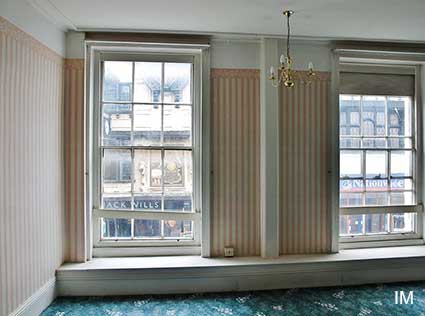
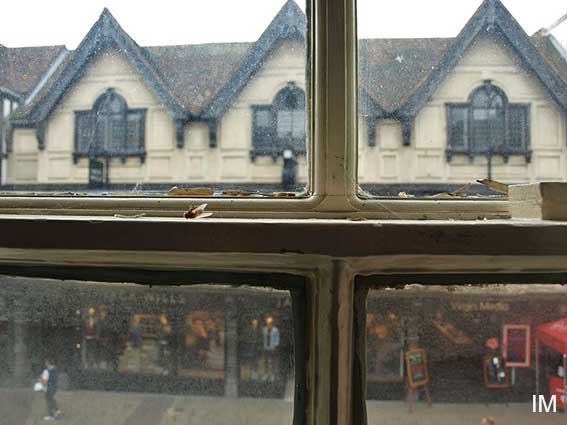 2016
images
2016
images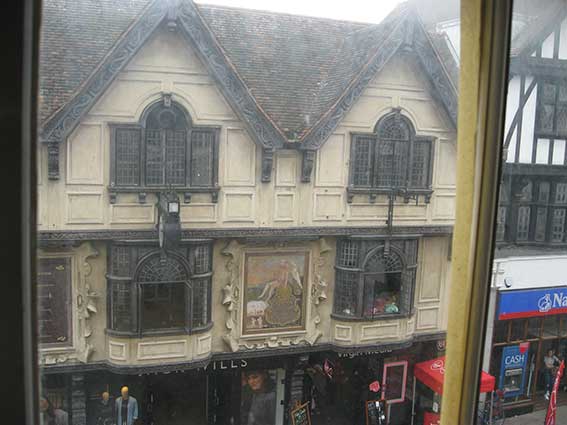
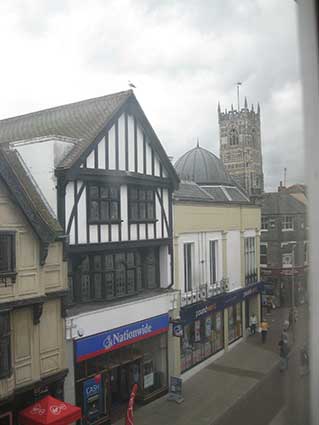
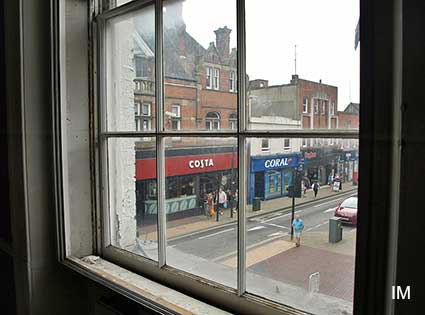
The Grade II* Listing text (slightly out of date) reads:
"Originally a C16-C17 timber-framed building refronted in the early
C19. It was made famous as the inn in Dicken's Pickwick Papers*. The present front
is of grey gault brick with a parapet and a rusticated stucco ground
storey. 3 storeys. 7 window range on the Tavern Street front and 2
window range on the Northgate Street front. A 3 storey wing of 5 window
range extends north with a further, later, 2 storeyed wing of 7 window
range at the north end in Northgate Street. All windows are double-hung
sashes with glazing bars, in painted reveals, with stuccoed flat
arches. The ground storey has stucco doorway with wide panelled
pilasters, Ionic plain columns in antis and a cornice on paired
brackets with a figure of a white horse above. Roofs slate. Part of the
original internal courtyard has been glazed over and part of it has
been preserved in the present lounge. It has some original windows,
double-hung sashes with glazing bars and small panes, one oriel bay
window and some exposed timber-framing.
Nos 31 to 41 (odd) and No 43 (Great White Horse Hotel) form a group.
Also No 43 (Great White Horse Hotel) forms a group with all the listed
buildings in Northgate Street, except Garden Wall to No 9."
*Dickens tells us that Mr Pickwick and Sam Weller head for Ipswich – to
the “overgrown tavern” of the Great White Horse:
". . . rendered the more conspicuous by a stone statue of some
rampacious animal with flowing mane and tail, distantly resembling an
insane cart-horse, which is elevated above the principal door.
The Great White Horse is famous in the neighbourhood, in the same
degree as a prize ox, or a county-paper-chronicled turnip, or unwieldy
pig, for its enormous size. Never was such labyrinths of uncarpeted
passages, such clusters of mouldy, ill-lighted rooms, such huge numbers
of small dens for eating or sleeping in, beneath any one roof, as are
collected together between the four walls of the Great White Horse at
Ipswich."
Dickens' visit is commemorated by an Ipswich Society blue plaque on the Tavern Street frontage. The
labyrinthine nature of The Great White Horse persists to
this day, judging by these 2016 photographs.
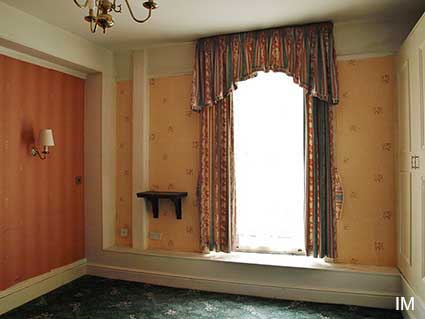
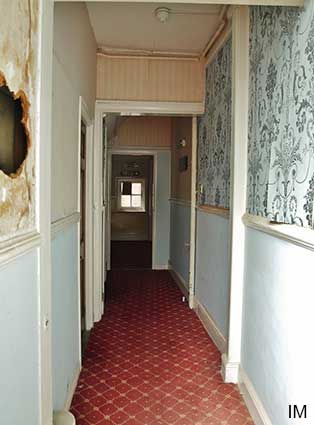
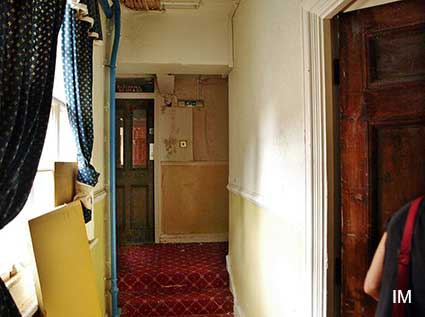
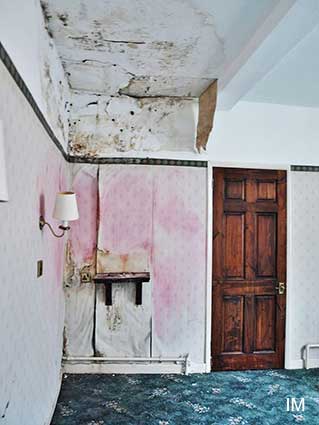
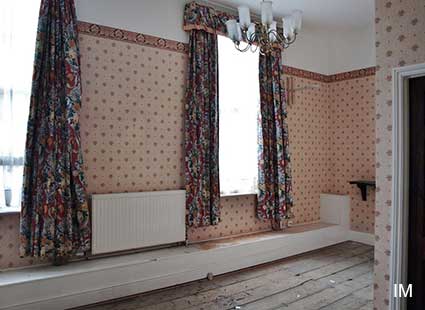 Spot the long bolts to the
right of the window holding up the camping shop sign
outside...
Spot the long bolts to the
right of the window holding up the camping shop sign
outside...
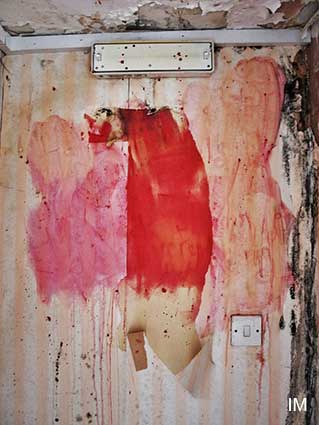
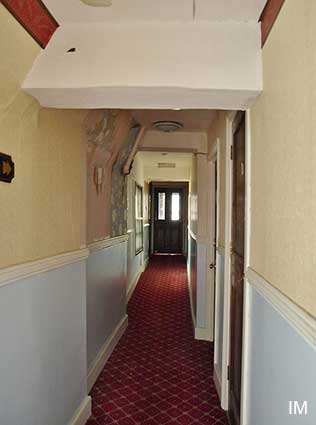
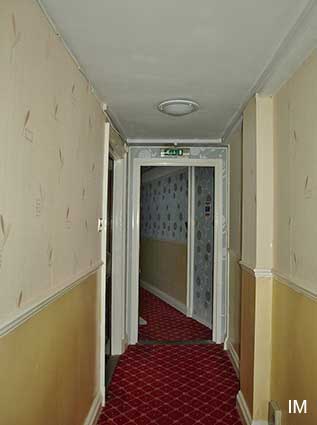
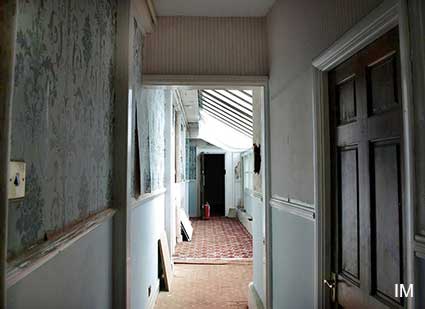
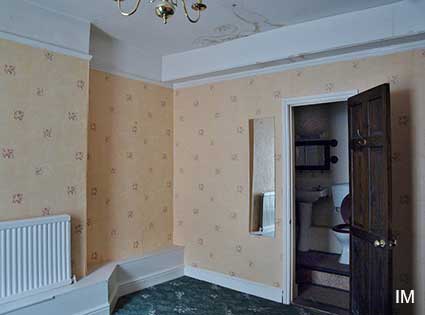
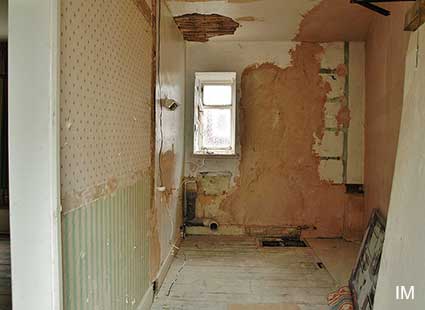
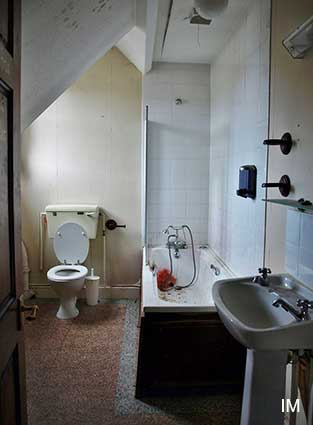
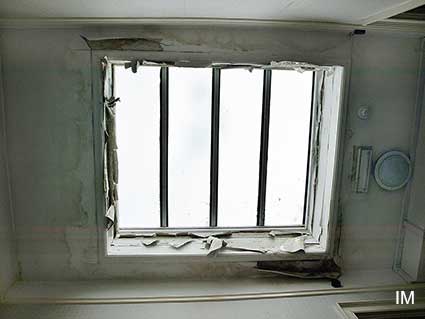
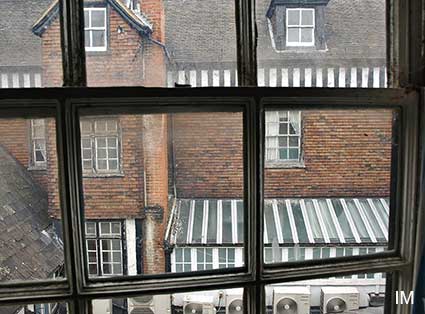
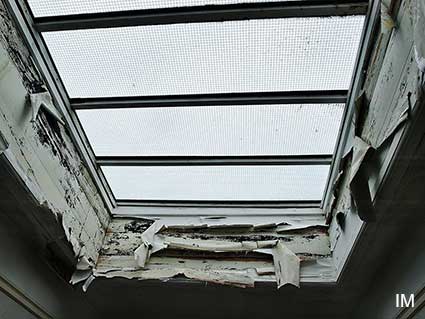
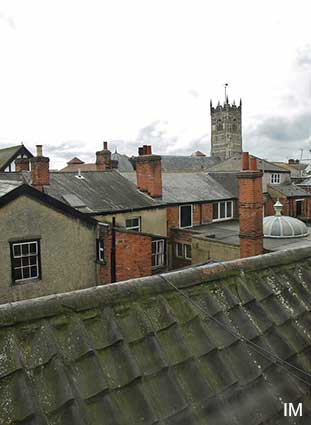
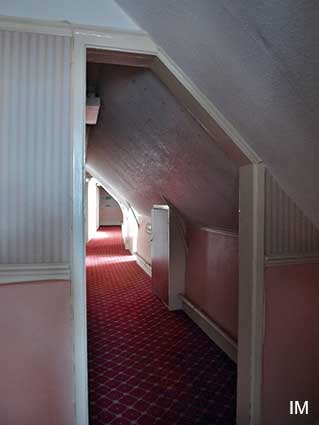
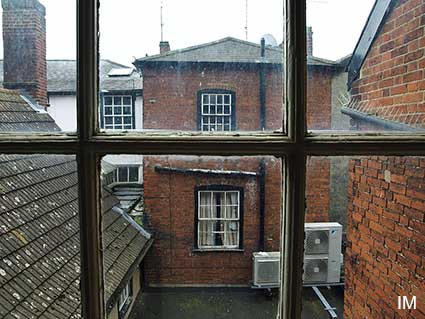
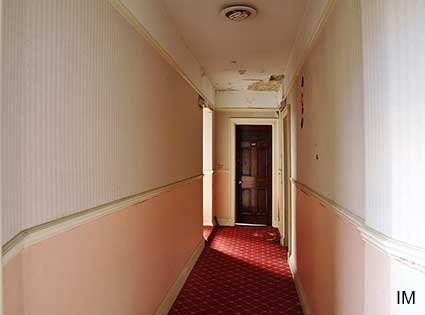
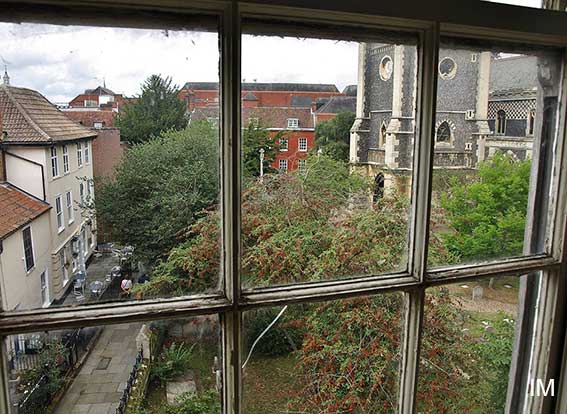
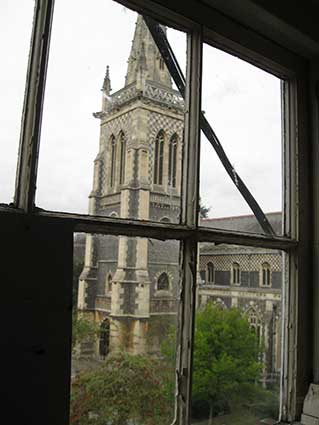
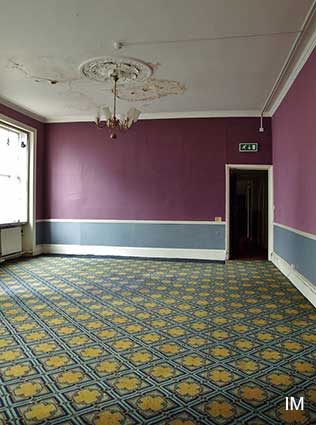
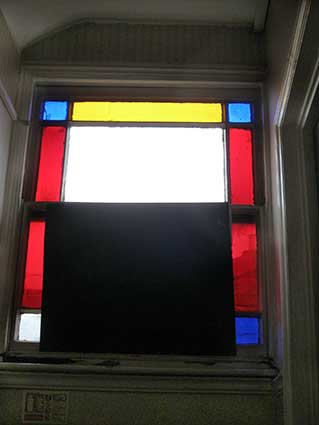
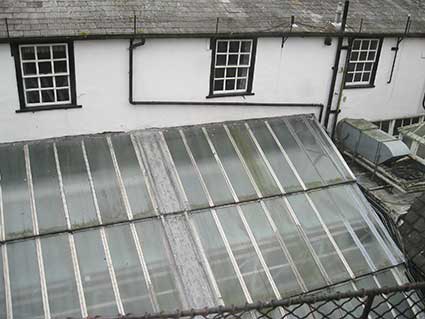
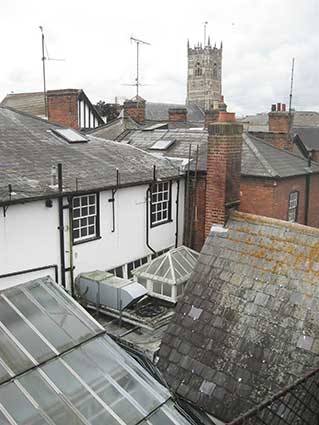
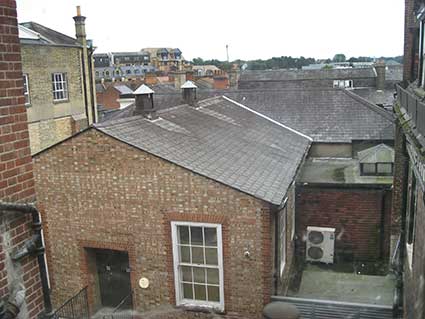
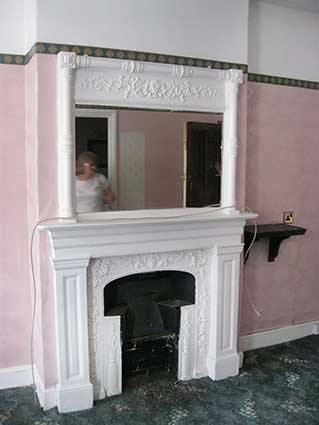
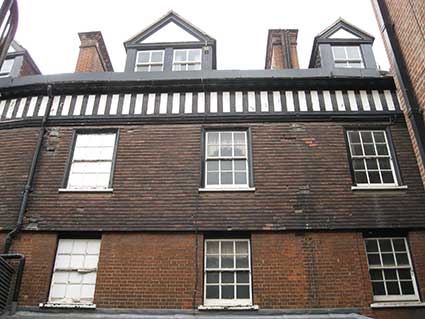
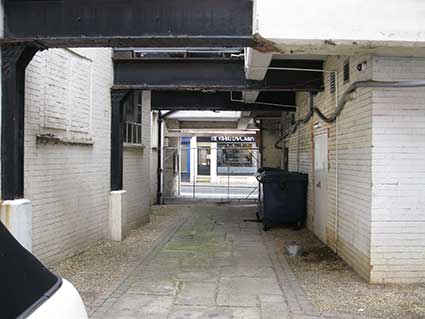
Final two images: the elevation above the entrance to the
Reception with snow boards in place below the dormer windows to hold
back heavy snow from falling from the roof on unsuspecting guests;
the view of Northgate Street from the
small paved courtyard.
What is perhaps surprising about this set is not what has been
removed from the rooms since 2008, but what has been left in place:
chunky 1970s-style wooden fittings, boxy bed-head units fixed to the
wall, replete with little shelves on which you can balance your cup of
tea or Gideon bible, garish carpets, swags of curtaining, modern
'chandeliers' and so on. Definitely a time-capsule, but
not dating to its original opening as a tavern in 1518, rather to its
latter years and closure 490 years later.
Home
Please email any comments
and contributions by clicking here.
Search Ipswich
Historic Lettering
©2004 Copyright
throughout the Ipswich
Historic Lettering site: Borin Van Loon
No reproduction of text or images without express written permission

 2016
images
2016
images






 Spot the long bolts to the
right of the window holding up the camping shop sign
outside...
Spot the long bolts to the
right of the window holding up the camping shop sign
outside...






















